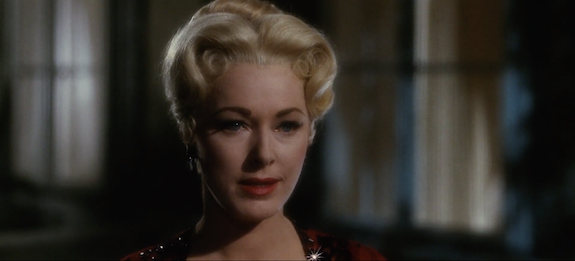Each month before the Smackdown, Nick Taylor chooses three performances to highlight that weren't Oscar-nominated...
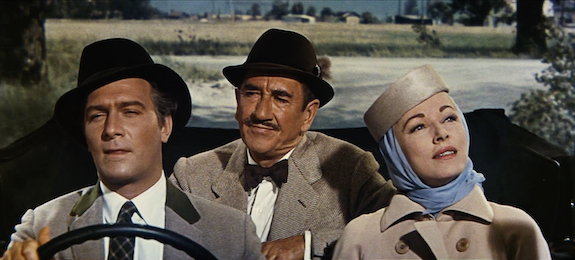
“And Eleanor Parker as The Baroness” reads the final casting credit of the opening credits of The Sound of Music. Hers is the only name that appears by itself, positioning the character and the actress as events the film wants you to eagerly anticipate. Hard enough when you're the other woman in a love triangle, especially as a non-singing role in a three-hour musical. Yet Parker, boasting one of the most exciting, chameleonic personas in American cinema, lives up to the hype over fifty years later, emerging with the film's most multifaceted performance.
Baroness Elsa von Schraeder won’t appear until roughly an hour into The Sound of Music, by which time we’ve already watched the indomitably energetic Maria (Julie Andrews) enter the Von Trapp family at the direction of her Abbess, instructing her to work as a governess to see if it’ll suit her better than being a nun...
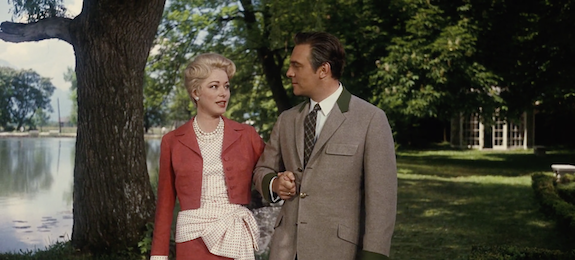
The head of the household is Captain Georg Von Trapp (Christopher Plummer), who has raised his seven children with military strictness since his wife died years ago. His hiring of Maria occurs before his latest romantic voyage to see the Baroness in Vienna, intending to finally bring her home with him to Vienna and meet his family. The film quickly establishes the Captain as an intimidating, unhappy, temperamental figure, having exorcised all music and joy from his life. So what kind of woman might we expect to return with him? Who would complement a man like Georg, and how will she respond to Maria and the Von Trapp children?
The Baroness drives into Salzburg with Georg and their friend Max (Richard Haydn), wearing a glamorous yet understated outfit, the elegance of her wardrobe contrasting nicely with the often heavy fabrics and drapery of Maria’s clothes. She looks like she’s basking in the beauty and newness of the landscapes, at finally getting to see the Captain in his natural habitat, just as Ted D. McCord’s camera basks in Parker’s beauty and bonafide star charisma. Georg is a much warmer, emotionally accessible man when he’s with Elsa, and she in turn is every bit as open and witty as he is. They immediately establish the chummy, aristocratic camaraderie and genuine infatuation of many a Golden-Age Hollywood film couple, though both actors go the extra mile to convey a bone-deep sorrow that’s instrumental to their bond. Both characters describe their relationship as a life-raft after their partners died. Parker’s sadness is especially captivating, taking on a brittle, knowing texture and conveying an intense awareness of herself and the world around her. She also shows Elsa is more sensitive to shifts and stillnesses in their relationship than Georg is: when she asks what she means to him, she chuckles to herself at his barrage of compliments both for his earnestness and because she’s aware he’s not answering her implicit question of when he’ll propose.
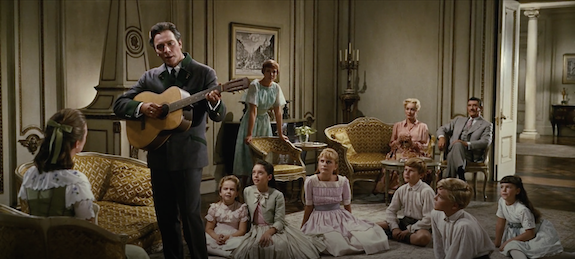
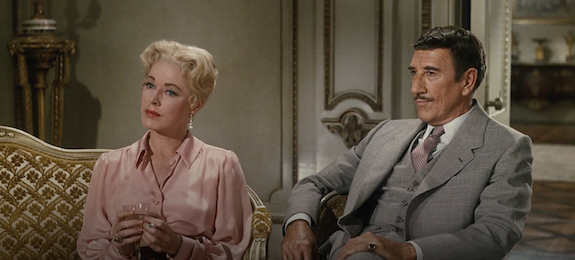
Elsa does not automatically assume Maria to be a rival for Georg’s heart, though meeting a woman as she falls out of a canoe isn’t a great first impression to gauge that sort of thing. The whole thing plays as very silly for Elsa, cat-grinning in amusement. But she does grasp that Maria has gotten along tremendously well with the Von Trapp kids, and is less amused by the anger their antics bring out in Georg. Parker doesn’t get to articulate any of this verbally, let alone in close-up. The Baroness is subject to some of director Robert Wise’s most unique blocking and framing, sometimes shot in close-up and sometimes with her back facing the camera, leaving her face completely obscured. Much like last month’s Oscar/Smackdown winner Fay Bainter in Jezebel, Wise continuously puts Parker in the foreground of scenes that aren’t focused on her character (Dorothy Jeakins’ stunning costumes also help draw our eye to her). The filmmaking frequently signals us to look in her direction, and Parker uses her marvelously expressive face to do the heavy lifting of guiding us through the film’s many musical performances and impactful conversations, showing us a Baroness who is absolutely charmed by the music bursting throughout the house but is perhaps more savvy than Georg and Maria are at recognizing the growing love between them. You could look at her face in any given scene and know exactly how that relationship is progressing.
Just as affecting as these understated Face Journeys are the moments when Parker drains her face, keeping that cat-grin up without indicating her own intentions. She is, surprisingly, at her most inscrutable in her conversations with Max, looking her loosest and most comfortable in his confidences even as she refuses to clarify whether she’s taken or annoyed by his jokes about her being a gold digger, or if her barb about sending the kids to boarding school is a serious thought or venting off steam. At the very least, she and Wise refuse to use these passages as an easy out to vilify the Baroness. We never doubt she loves Georg, and her perspective is treated with remarkable complexity and generosity.
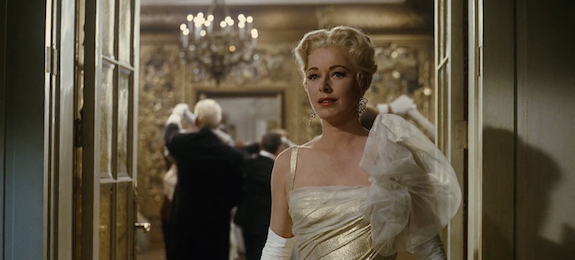
All of this means that when Elsa tells Maria that Georg is in love with her, and that Maria in turn loves him back, it's played too delicately by the actors and director to be labeled as a confrontation. Andrews, marvelous throughout, looks genuinely caught off her guard at having been recognized in this way, too terrified of her own emotions to do anything but run. Parker looks decidedly mournful herself, her faux-pleasantness and eternal poise barely masking her anxiety. Their conversation plays as a last-ditch attempt by the Baroness to stop herself from becoming the other woman in someone else’s love story, whose only solution is to get Maria to bail before Georg can grasp his own feelings. One can only imagine how victorious it must feel to end Act One dancing with your beloved in a shimmering, golden dress after sending off a rival for his affections, but Parker and Wise make this sight all the richer for imbuing Elsa with a real sense of poignancy. Maria leaving doesn’t feel good, even if it keeps Georg with her a little longer.
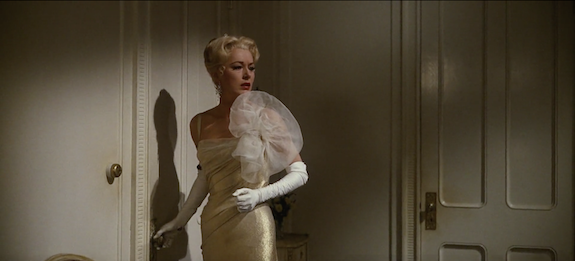
Act Two, on the other hand, quickly undermines Elsa’s victory. We see her playing some ball game with the Von Trapp kids, doing a test run of the whole “motherhood” thing. Her gigantically nervous reactions whenever the ball comes near her are comically overscaled but pitifully appropriate to the children’s bullying. Soon after this ordeal Georg announces that the Baroness will be the children’s new mother, and the cold dissatisfaction radiating off the Von Trapp kids is overwhelming. As sincere as their love is, everything about this arrangement feels off-key even before Maria returns to the villa. Elsa surely knows what will happen next once Georg asks Maria if she’ll be staying for good - when she meets him on the balcony that evening her talk about potential wedding gifts for each other and honeymoon destinations sounds affected, scaling herself slightly bigger than normal, as though she’s trying to stave off this inevitable disappointment by willing their love into being. And yet, when he starts calling it off, Elsa interrupts him to say her own goodbye rather than hear him end it. Maintaining her composure without disguising her feelings of dejection and resignation, Elsa tells the Captain that she cannot stay with him, that she needs a man who needs her desperately ("Or at least needs my money desperately," she says with some bitterness). She gives her blessing for him to be with Maria, gives him a kiss on the cheek, and leaves.
Parker plays this interaction on the verge of tears, yet we never doubt that the Baroness will walk away from this heartbreak just fine in the end. It takes an astonishing amount of clarity to convey her sorrow while still showing how much Elsa still treasures their relationship, even as it fades away. Nor does she once point any ill will at Maria. Parker's last scene is as much a tribute to Wise's lavish attention and the character's self-assuredness as to her porcelain, carefully contained work. Yet, for all The Sound of Music's immortal elements - the majesty of its construction, the durability of its songs, its perfect leading players - I don't know how anyone could watch Parker and think it's not her movie.
